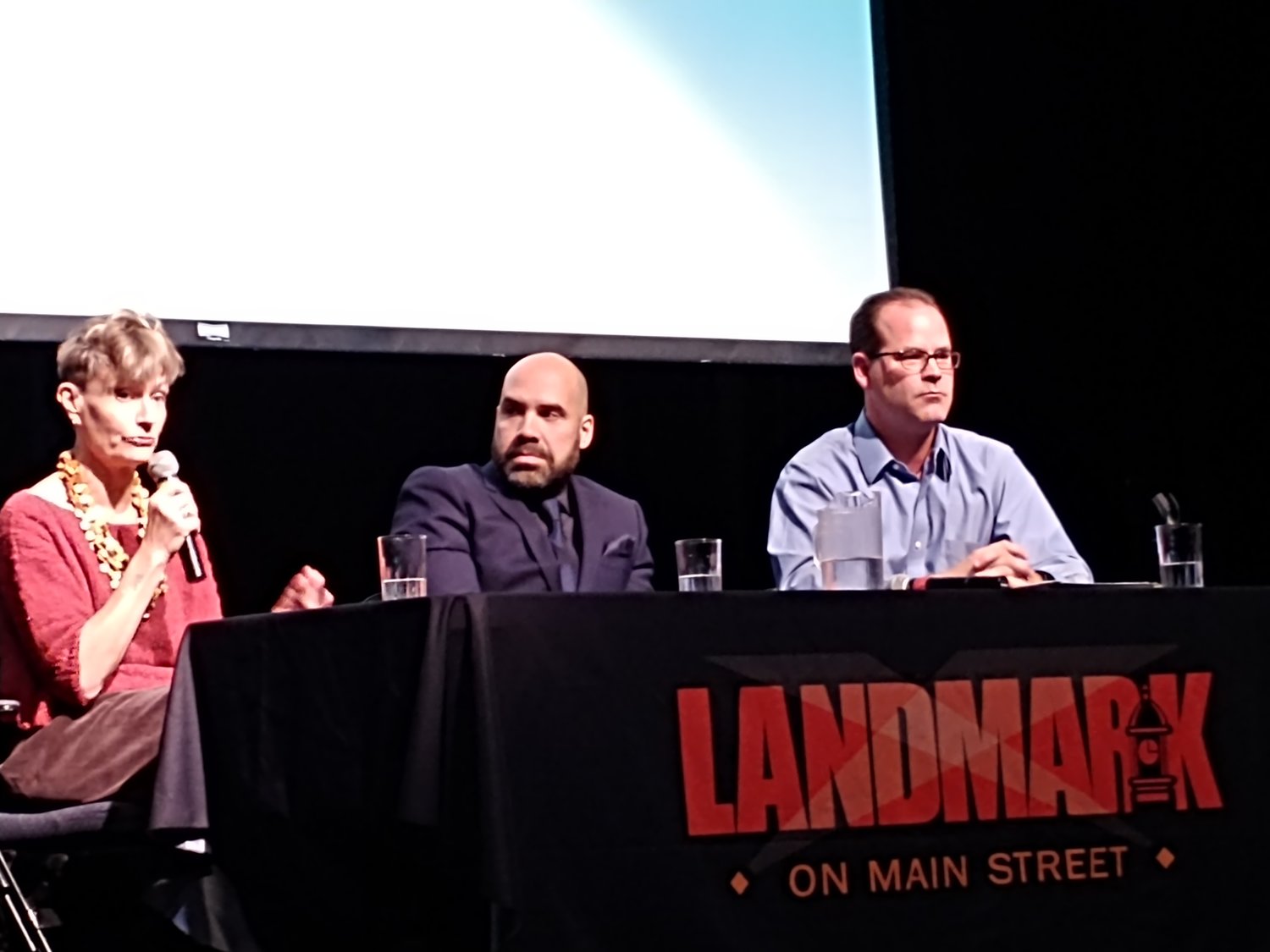Senior Center forum challenges attitudes on aging
Deeply woven into the fabric of Bernard Macias’s childhood is the steadfast presence of his grandmother. She lived with his family, welcomed him home from school each day and cooked meals he remembers to this day. “I was very lucky to grow up seeing my grandmother,” Macias said, “but my kids — they look at older people a bit differently than I do.”
Now an associate director of AARP Long Island, Macias’s job is raising awareness of older populations.
He and community leaders, activists, sociologists and policy makers were part of a panel that offered insights on aging at a program called “Conversations from Main Street, the Aging Revolution” last Sunday at The Landmark in Port Washington. Carol Waldman, the executive director of the Glen Cove Senior Center, moderated the event.
In the next two to three decades, people in their 60s and older are expected to become a majority of the world’s population. It is essential, Macias said, for those who are uncomfortable around the elderly come to terms with that demographic trend and become better informed about issues associated with an aging society.
Author Ashton Applewhite, who writes about ageism — discrimination against older people — was a member of the panel, and said that all too often, biases against a group go unchallenged, because people internalize those biases without giving them a second thought. Even language, she said, assigns blame to advanced age for some well-known problems. “When an older person forgets something, why is that person having a ‘senior moment’?” Applewhite asked. “Well, why don’t we see that as a ‘junior moment’ for younger people?” The comment drew laughs.
Waldman said that one barrier to understanding is the focus in our culture on youth and the tendency to ignore the implications of aging. She pointed out that in a capitalist society, a person’s identity is strongly defined by a job, so society often dismisses older people as having little value to offer in the workplace, and even being dispensable. “Ageism is a socially constructed idea,” Waldman said, “and the discrimination is harmful.”
Besides societal attitudes toward older people, there are structural problems like employment. Macias said he sees workers in their 50s and 60s coming to AARP after being displaced from their jobs, but there is no equivalent of a Better Business Bureau for those facing age discrimination.
Lydia Keane, a retired social worker, said that in her industry, there seems to be less stigma attached to age. “Being a social worker, you’re valued as you get older, and considered ‘the older, the wiser,’” she said. “At least at my workplace.”
Another social worker, Debra Brodsky, voiced her concern about how the transportation system on Long Island fails to address the needs of older people. She saw this firsthand when her father was ill. He needed a health aide at his home in Port Washington, but Brodsky couldn’t find anyone, because although there is a train station nearby, the bus stop is too far away. “This seems to be a suburban problem,” she said, “because in the city there are buses everywhere.”
A home health aide making minimum wage cannot afford an alternative like a cab, so the lack of connected public transportation on Long Island means that many elderly people are stuck without essential help. Eventually, Brodsky recounted, she took it upon herself to stop by her father’s home on her way to and from work each day, and even took some vacation time to take care of him until his health improved. The area needs improvements in infrastructure, she said.
Greg Olson, of the New York State Office for the Aging, views the issue at the policy level. Olson, who works closely with Gov. Andrew Cuomo, said that funding of projects to benefit older people can be obtained without increasing taxes.
All of the presenters affirmed their commitment to the engagement of the public in an aging society. And their arguments were apparently persuasive: Several people in the audience expressed an interest in getting involved in efforts that address issues related to aging.

 39.0°,
Fair
39.0°,
Fair 





